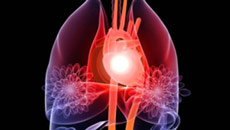A sweet smell on the breath of your kids could have bitter health consequences as researchers have found that it could signal the onset of Type 1 diabetes.
A sweet-smelling chemical marker (acetone) in the breath is linked with a build-up of potentially harmful chemicals (ketones) in the blood that accumulate when insulin levels are low, the researchers noted.
"Current testing for diabetes requires a blood test which can be traumatic for children," said co-author of the study and professor Gus Hancock from the University of Oxford in Britain.
These results - linking an increased level of breath acetone with increased levels of harmful ketones in the blood - could inspire the development of a diagnostic device to identify children with new diabetes before the onset of diabetic ketoacidosis (DKA).
DKA occurs when a severe lack of insulin means the body cannot use glucose for energy and starts to break down fat instead.
Organic compounds called ketones are the by-product of the breakdown of fat and, if left unchecked, can build up and cause the body to become acidic.
Acetone, which is the simplest ketone, is one of the by-products produced in the development of DKA and is usually disposed of through the breath.
In their study, the researchers collected the breath samples from 113 children and adolescents.
The study appeared in the Journal of Breath Research.





